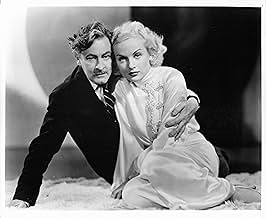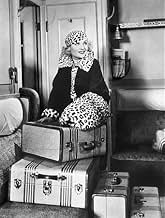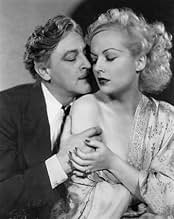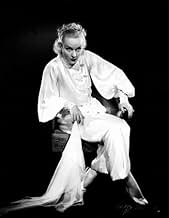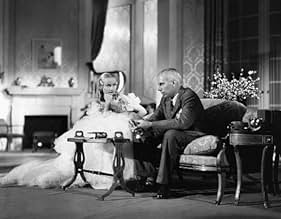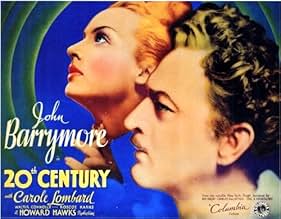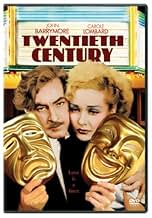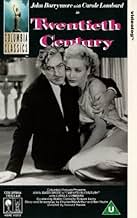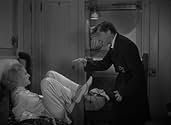IMDb RATING
7.2/10
7.6K
YOUR RATING
A flamboyant Broadway impresario who has fallen on hard times tries to get his former lover, now a Hollywood diva, to return and resurrect his failing career.A flamboyant Broadway impresario who has fallen on hard times tries to get his former lover, now a Hollywood diva, to return and resurrect his failing career.A flamboyant Broadway impresario who has fallen on hard times tries to get his former lover, now a Hollywood diva, to return and resurrect his failing career.
- Awards
- 4 wins & 1 nomination total
Charles Lane
- Max Jacobs
- (as Charles Levison)
Bobby Barber
- Sign Painter
- (uncredited)
Herman Bing
- Beard #1
- (uncredited)
Lynton Brent
- Train Secretary
- (uncredited)
Anita Brown
- Black Stage Showgirl
- (uncredited)
James Burke
- Sheriff
- (uncredited)
James P. Burtis
- Train Conductor
- (uncredited)
Eddy Chandler
- Cameraman
- (uncredited)
Nick Copeland
- Treasurer
- (uncredited)
Featured reviews
John Barrymore leads a great cast in this zany comedy of life in the theater. His performance alone is worth seeing as he proves what a gift he had for comedy. The rest of the cast is wonderful too. And if you disagree, I'll close the iron door on ya!
Why this loud talky mess gets top ratings from professionals stumps me (TMC, Maltin, et al.). The only thing I can figure is they're overly impressed by pedigree—namely Hawks, Lombard, Barrymore, and the writing team of Hecht and MacArthur. But once you get past the legendary reputations, the results are more annoying than impressive. It seems someone confused frenetic with amusing, while the arm waving babble is simply non-stop. It's like everyone will laugh if you just say it loud enough with enough spastic energy.
Barrymore, in particular acts like he's heck-bent on climbing the walls. But the lines aren't funny, and neither are the situations—reputations or no. Maybe the screenplay is aimed at show-biz types who will catch on to esoteric inside jokes. Some such is the only explanation I can think of. Hawks, fortunately, appears to have learned his lesson. His Binging Up Baby (1938) amounts to a masterpiece of madcap. It's everything this indulgent mess isn't, but should be. There appears to be a moral to this movie, but whatever it is, it's not a good one.
Barrymore, in particular acts like he's heck-bent on climbing the walls. But the lines aren't funny, and neither are the situations—reputations or no. Maybe the screenplay is aimed at show-biz types who will catch on to esoteric inside jokes. Some such is the only explanation I can think of. Hawks, fortunately, appears to have learned his lesson. His Binging Up Baby (1938) amounts to a masterpiece of madcap. It's everything this indulgent mess isn't, but should be. There appears to be a moral to this movie, but whatever it is, it's not a good one.
As soon as this gem begins, we're dipped into great comedy. An egomanical producer (a very funny John Barrymore) takes lowly fashion model Mildred Plotka (equally funny Carole Lombard) and makes her the darling of Broadway. She rebels from his Svengali-like grasp and heads for Hollywood. Years later, Barrymore, armed with his sidekicks (tipsy Roscoe Karns and whiner Walter Connely) meet Lombard on a cross country train. During this insane adventure there's hammy Euro-trash Passion Play actors (They think "Moocher" is some sort of compliment), a kindly old religious nut (armed with repent stickers and bouncing checks) The finale verbal-physical spat of Lombard vs. Barrymore is not for the faint of heart! A Classic comedy Goldmine!!
John Barrymore is in rare form in Twentieth Century (1934), Howard Hawks's hilarious, fast-paced screwball comedy. He plays flamboyant Broadway director-producer Oscar Jaffe, a man for whom the whole world is truly a stage. The always enchanting Carole Lombard co-stars as Mildred Plotka/Lily Garland. (Oscar demanded the name change because Mildred Plotka isn't nearly as glamorous sounding as Lily Garland.) Mildred, an aspiring Broadway actress, is remade by Oscar into a star of the New York stage. For three years he directs her plays, guides her career, and is her lover. But after they have a big disagreement, she takes off for Hollywood. Her career soars; his plummets. Time passes and then on board the Twentieth Century heading for Grand Central Station, they meet again. As usual in a Hawks film, the supporting cast is outstanding; and Ben Hecht and Charles MacArthur's screenplay is one of their finest.
Howard Hawks' early foray into screwball comedy pits the wonderful pairing of John Barrymore and Carole Lombard against each other. She is Lily Garland, a Broadway actress about to break in Hollywood; he's her theatrical producer and on-off beau, desperate for her to stay. Around half of the film is taken up with them screeching at each other, leaving the supporting actors with very little to do.
There is a lot of sparkle here, great performances from the two leads, who work together just fine, and a screenplay which moves almost as fast as the train which gives the movie its title. Ten years after this was made, both Barrymore and Lombard were dead, but this stands as a fine epitaph for them together.
There is a lot of sparkle here, great performances from the two leads, who work together just fine, and a screenplay which moves almost as fast as the train which gives the movie its title. Ten years after this was made, both Barrymore and Lombard were dead, but this stands as a fine epitaph for them together.
Did you know
- TriviaJohn Barrymore once said that the role of Oscar was "a role that comes once in a lifetime" and even deemed this his favorite of all the movies he appeared in.
- Goofs(at around 20 mins) O'Malley arrives at Lily's apartment. When she answers the door, he discards his newspaper twice between shots.
- Quotes
Oscar Jaffe: Go on, Owen... tell her I'm dying... and DON'T OVERACT!
- Alternate versionsThere is an Italian edition of this film on DVD, distributed by DNA Srl. The film has been re-edited with the contribution of film historian Riccardo Cusin. This version is also available for streaming on some platforms.
- ConnectionsFeatured in The Men Who Made the Movies: Howard Hawks (1973)
- SoundtracksHappy Days Are Here Again
(1929) (uncredited)
Music by Milton Ager
Lyrics by Jack Yellen
Sung a cappella by Walter Connolly
- How long is Twentieth Century?Powered by Alexa
Details
- Release date
- Country of origin
- Languages
- Also known as
- 20th Century
- Production company
- See more company credits at IMDbPro
Box office
- Gross worldwide
- $10,078
- Runtime
- 1h 31m(91 min)
- Color
- Aspect ratio
- 1.37 : 1
Contribute to this page
Suggest an edit or add missing content


